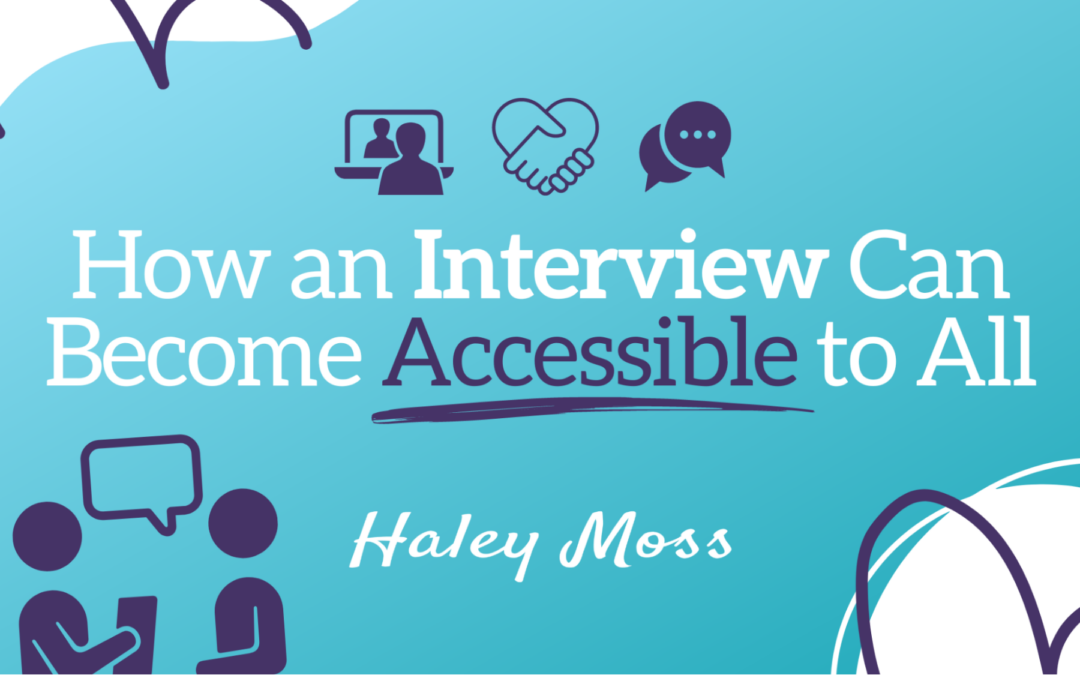As a business, you want to have the best, most talented people working for you, but you can only do that if you provide an accessible and inclusive interview process for everyone. You might be missing out on a large portion of talent in your industry by sticking to old interview habits.
If you want to start reaching out to more qualified candidates, it is time to rethink your interview process and make it accessible and inclusive to all. Thankfully, it is a very doable and beneficial process.
Provide Ample Communication Throughout the Process
First, you want to increase communication from both sides. This could start with actively asking interviewees if they need any accommodations or adjustments throughout the process. As a neurodivergent interviewee, you also want to provide accommodation information before the interview, ensuring your needs are listened to and appropriately met. It is wise to keep up this communication through every phase of the interviews, ensuring that whether it is a one-on-one or a working interview, needs are considered when planning.
Additionally, communication needs to come from your side as well. That means including information such as dates, times, locations, duration, formats, and agendas for every interview stage so individuals can come properly prepared. It is also important to include the names and titles of anyone who will be attending the interview. There is also the option to send over specific interview questions beforehand or allow interviewees to visit the interview location and test the interview platform before the scheduled date. All of this can help individuals prepare mentally and physically and be at their best when the time comes.
Create an Accessible Environment Both Physically and Virtually
Virtual interviews can be extremely beneficial for many neurodivergent individuals. As you assess your interview process, consider offering interviewees the option of choosing between physical and virtual environments.
If you have a physical interview environment, ensure it is properly accessible by public transportation or parking and that ramps, elevators, or bathrooms are available. Additionally, ensure the interview room is spacious, comfortable, and quiet. You may also want to look into utilizing an interpreter, speech-to-text reporter, or other communication device.
On the other hand, if you are conducting a virtual interview, it can be wise to invest in a platform that supports subtitles or transcripts. Webcams might also be made optional rather than required in an interview. Overall, all of these accommodations can be communicated beforehand between both parties to ensure everyone is confident and comfortable.
Rethink Your Interview Style
Now that communication is established, and the environment is set, the next step is to rethink your overall interview style. What you have been doing in the past may not be in everyone’s best interest.
Incorporating details such as speaking slowly, clearly, and loudly without covering your mouth can make a world of difference for many. Additionally, using direct and literal language rather than slang, jargon, or idioms can ensure that everyone properly understands what is being said and asked of them. This also means avoiding hypothetical, open-ended, or situational-based questions. You want to focus on one question at a time, giving the candidate enough time to think and answer while providing clear feedback and a chance to ask questions.
You might also want to reconsider the entire format of the interview. Asking a series of questions may not allow people to showcase their knowledge or skills in the best possible light. Allowing interviewees to perform tasks, receive feedback, or do a mock assignment or activity may help you get to know all types of candidates best.
Be Open-Minded to Different Work Styles and Necessities
Providing an accessible and inclusive interview for everyone means being open-minded to the many ways people work and their necessary accommodations as neurodivergent individuals. As an employer and possibly their future manager, your open-mindedness can help create a safe and welcoming environment for them, not only for interviews but also for overall work.
During the interviewing process, you might meet people who flourish when working alone rather than within a group setting, someone who might not provide the level of eye contact you are used to but can retain information better than anyone else, or someone who needs direct written instructions on what to do rather than an open-ended project. All of these are just other ways of working, but all end with the same result – quality work. As an employer, you must be open-minded to people’s needs and accommodations throughout the interview process and beyond if you want to attract the best talent for your organization.
If you want the best talent on your team, it all starts with an accessible interview process. If you have questions or wish to learn more about creating an inclusive workplace as a leader and organization, contact me!

